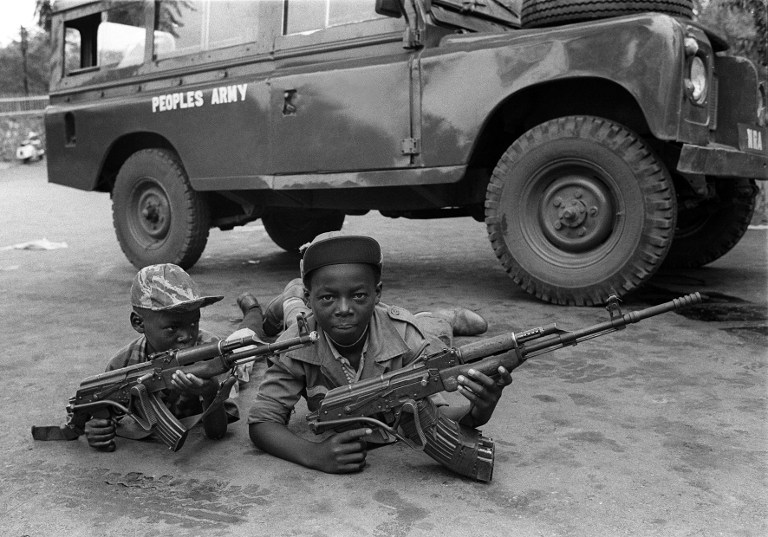Her story follows a dialogue between the University of Cape Town, University of the Sacred Heart in Uganda and local NGOs around the phenomenon of child soldiers in Africa, and how they compare to children on the Cape Flats who are lured into gangs
The 48-year-old mother, whose name is being withheld to protect the identity of her underage son said: “He started hanging around the boys at the corner at a very young age, his father who was able to keep our eldest son out of trouble died when he was five. I couldn’t control him by the age of 10 when he started befriending gangsters twice his age,” she said.
“I first noticed the gun when he was 13, but by then he had already lost interest in school and was under the thumb of the drug merchant. I am just waiting for the day I get the call to identify his body because he has been shot.
“Communities in Cape Town have been calling for the deployment of the army to areas affected by gang violence to stabilise the situation.
“We are told that Cape Town is not at war – but these people saying this do not live in Hanover Park or Manenberg where our children are shot at in the streets How is that different to a war zone?”
Founder of the Hanover Park Society, Maulana Rodrigues, said: “Commonly it is understood a child soldier is a youngster with a gun in a war and many of us deny child soldiers exist in the Western Cape. But the meaning of child solider in our societies is very simple and we cannot deny there are youngsters with guns in Cape Town.
“For Hanover Park, by September last year there were 32 killings a month and many of these murders were committed by youngsters. Numbers of child soldiers have grown from 450 to 500 this year in the Athlone region alone, but if we look at South Africa in totality it has grown to around 10 000.
“In Hanover Park we found after our case study that 80% of these children are school dropouts with the youngest shooter being just 9 years old. Children get from these gangsters what they don’t get from their parents and they will stay indebted to that gangster and the way our children pay their debt off is by killing rival gangs.
“After we sat down with children, they told us that from their first killing they felt remorse but by the second killing they become blood thirsty.”
Vice-Chancellor at University of Sacred Heart Dr Jino Mwaka said although experiences of children exposed to violence in his country differed to that of the South African context, both needed intervention that goes beyond conventional methods.
“A child soldier in the Ugandan context has primarily been associated with groups that are directly working to overthrow established state institutions. However, in other contexts, children may also become participants trapped in the violence of armed groups in their own communities, and they are still children at war and we must go beyond conventional notions of who the child soldiers are.”
By: TSHEGO LEPULE



